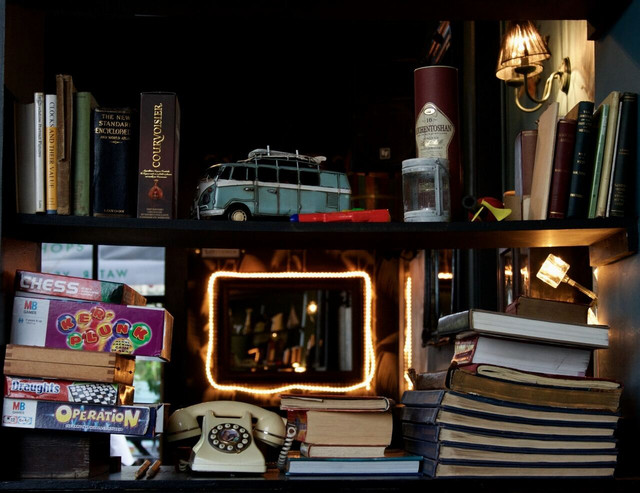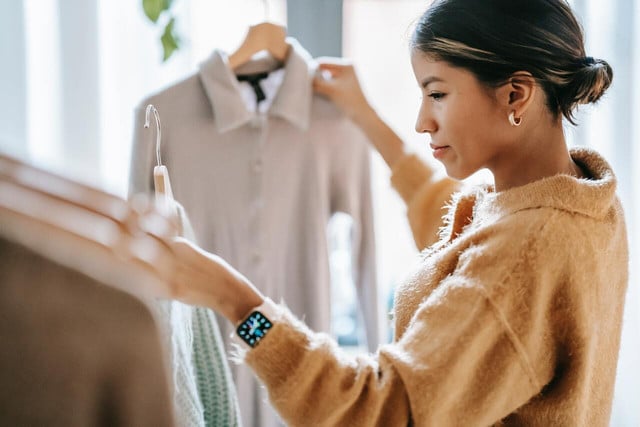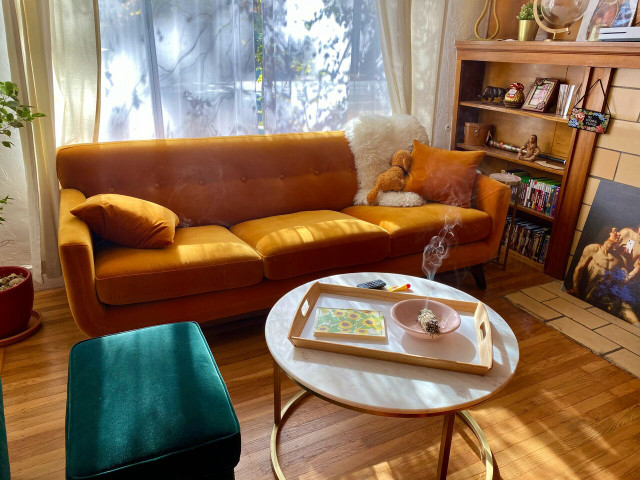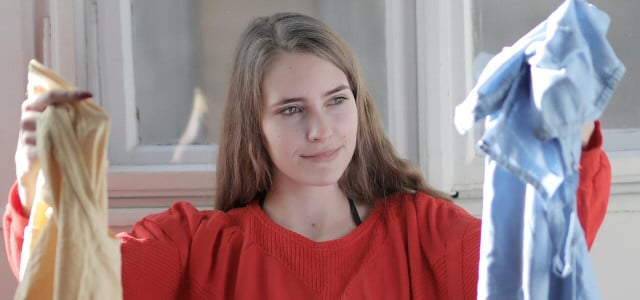Read about one young student’s journey as she takes an honest look at her possessions, rethinks her relationship with consumerism and discovers the benefits of minimalism.
Do you ever wonder how many possessions you actually own? In a world where the average American home holds 300,000 objects, it’s easy to feel overwhelmed by clutter. Compare that to the average European’s modest 10,000 items, and it’s clear that we could all benefit from downsizing.
But what does that look like in practice? Enter Judith Gebbe, a student on a mission to uncover the true extent of her possessions. Through an eye-opening inventory of her household, Judith discovered fascinating surprises, sparking a profound journey toward becoming a minimalist.
Join us as we chat with Judith, delve into her experience, learn what items she simply cannot live without and explore how creating a minimalist home could transform our own lives. It’s time to rethink what we truly need and uncover the power of living with less.
You took an inventory of your entire household. Don’t you have anything better to do with your time?

Judith: Lots of people asked me that same question. Who counts all their junk anyway? But this project wasn’t borne out of sheer boredom. I definitely could have used the time to learn another language instead of counting my books, socks and pens. At first, I just found it interesting to see everything I own. Besides that, I like numbers and connections and was fascinated by the data I collected. We own so many things without ever really thinking about it. But when you start cataloging every item, it’s suddenly obvious and measurable.
So you just started counting things?
Judith: I took part in a youth project about changes in consumption and began working through a lot of questions about consumerism. That, and the topic of minimalism. I’m excited by people who manage to live with fewer than 100 objects. A few years ago, I read an article about a photographer who individually counted and photographed all of her possessions. She discovered that she never or very rarely used over half of them. I immediately asked myself how this applied to me — and the idea of taking my own inventory was born.
What do you hope to achieve with this project?



Judith: In the beginning, it was above all about the numbers, so I could come up with some cool statistics. After a while, I noticed that my inventory was a reflection of my consumer habits. That made me aware that there are still so many things I can and need to change to live my life sustainably. The next step was telling others about it and sensitizing them to their own consumption habits. It’s about gaining a better, more objective understanding of what it means to be a conscious consumer.
What has it meant for you, personally?
Judith: For one, it was fun for me to work more deeply with databases and statistics. This project also helped me see ways to be more sustainable in the future — it put literally everything I own and use right in front of my eyes. The knowledge that you already have 14 t-shirts can make you realize you don’t actually need that new fast fashion. The excitement of shopping decreases because you suddenly realize, “I have enough.” That’s not anything I could have anticipated.
Utopia’s tip: Put yourself and your often overflowing closet to the test: Creating a minimalist wardrobe is a great way to simplify your day — or, have you heard of the Project 333 Challenge?
Why don’t you just rid of unnecessary things immediately? Why count them first?



Judith: Counting creates a greater consciousness regarding your possessions, and you actually declutter your home differently. You become particularly aware of the number of things you have. It’s not only about whether or not you need a specific item but whether you need five such items or similar objects. It changes how you go about the elimination process.
Utopia’s tip: Getting rid of things is liberating but can feel impossible. We often think that what we hold on to will be useful “someday,” yet that day rarely arrives. But we can help! We’ve collected a few simple methods to help you cast aside those unnecessary belongings. Check them out:
- Make Your Life Easier with These 12 Tips for Minimalistic Living
- Why Swedish Death Cleaning Is Suitable for Everyone at Any Time
- Zero-Waste Lifestyle 101: How to Lead A No-Waste Life
- 7 Tips for Living More Sustainably Without Breaking the Bank
The Art of Letting Go: Embracing Minimalism
Breaking free from the chains of materialism is no easy feat, but it’s a liberating journey worth taking. After exploring Judith’s eye-opening account, we’re reminded of the truth: letting go of possessions may seem impossible, but it’s an essential step towards a life of conscious consumerism.
As we part with items we once believed to be indispensable, we often find that “someday” never arrives. Embracing minimalism is about uncovering what truly matters and casting aside the unnecessary baggage weighing us down.
Read more:
- What Is Stonewalling in a Relationship & How to Spot It
- 5 Infuriating Examples of Planned Obsolescence in Everyday Objects
- The 11 Best Caves in the US for Waterfalls, Fossils & Wildlife
Do you like this post?







